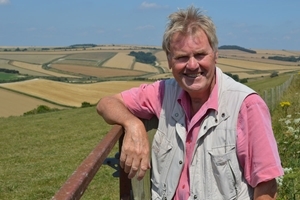 Early-career scientists and land managers in need of funding for scientific projects are being invited to apply to the Dick Potts Legacy Fund. The fund was set up in memory of the late internationally recognised British ecologist Dr Dick Potts. Dr Potts was director-general of the Game & Wildlife Conservation Trust (GWCT) and a conservation-science pioneer.
Early-career scientists and land managers in need of funding for scientific projects are being invited to apply to the Dick Potts Legacy Fund. The fund was set up in memory of the late internationally recognised British ecologist Dr Dick Potts. Dr Potts was director-general of the Game & Wildlife Conservation Trust (GWCT) and a conservation-science pioneer.
“This is a great opportunity for researchers just starting out on their careers or who are returning to ecology, where a financial boost could make a world of difference,” said Dick’s widow Olga Potts, who established the fund following his death in 2017.
The fund aims to support the next generation of ecologists by providing grants to farmland wildlife research projects to cover the costs of research supplies and equipment, travel, software, attendance at conferences and similar expenses. The scheme is open to early-career ecologists, farmers, gamekeepers and land managers from the UK and Europe to assist them in establishing their own small projects.
Dr Julie Ewald of the GWCT, one of the advisors to the fund, said: “We are looking for applications which are innovative and practical, and which address a recognised problem in conservation and clearly demonstrate how they will advance our knowledge of Farmland Ecology.”
Last year Jon A. Zearra, who was studying Wildlife Management at the University of Murcia, Spain, received a grant. With the help of the Dick Potts Legacy Fund, Jon has been helping to research the importance of insects in the diet of wild red-legged partridge chicks in farmland in central Spain, under the supervision of Dr Fabian Casas and Dr Carlos Sanchez. Extensive research has been done into the diet of grey partridge chicks, including by Dick Potts himself, but the red-legged partridge has been less studied, and this research is looking to fill that gap. The project also plans to develop guidance for farmers, game managers and policy makers on how to create insect-rich habitats. The team has so far discovered that a hemipteran is the most common insect species in red-legged partridge chicks’ diet, and that their abundance is higher in fallow fields. The possible discovery of a new insect species is also being considered.
Dr Potts was an innovator in how he would solve problems, often devising small experiments or ways of analysing data that showed the best way forward for practical conservation management. For this reason, the fund seeks to support projects that advance the field of applied wildlife ecology.
“Projects that are agro-ecological, and that Dick would have found exciting, will be looked upon favourably,” said Julie.
To follow in the footsteps of Dr Potts and apply for funding, please visit www.gwct.org.uk/dickpotts. Those researchers wanting to use the fund for 2021 field season projects should apply by 15 April. All others, with projects starting later, should apply by 30 June.
Notes to editors
The Game & Wildlife Conservation Trust – providing research-led conservation for a thriving countryside. The GWCT is an independent wildlife conservation charity which has carried out scientific research into Britain’s game and wildlife since the 1930s. We advise farmers and landowners on improving wildlife habitats. We employ 22 post-doctoral scientists and 50 other research staff with expertise in areas such as birds, insects, mammals, farming, fish and statistics. We undertake our own research as well as projects funded by contract and grant-aid from Government and private bodies. The Trust is also responsible for a number of Government Biodiversity Action Plan species and is lead partner for grey partridge and joint lead partner for brown hare and black grouse.
For information, contact:
Eleanor Williams
Telephone: 07592 025476
Email: press@gwct.org.uk